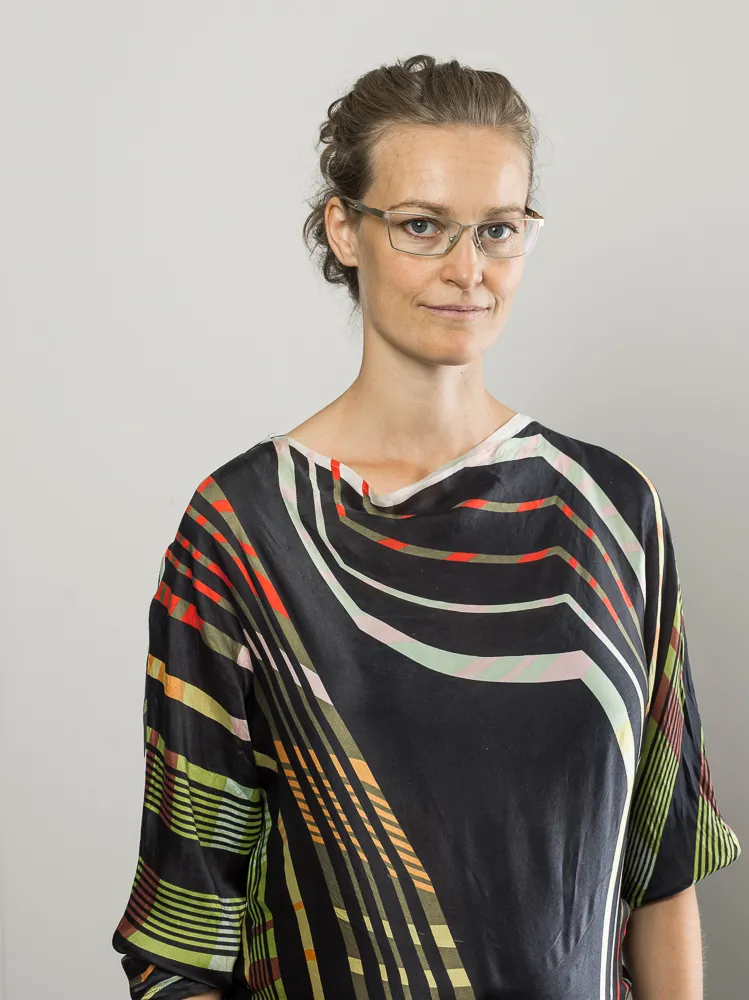Ida Tin is the founder of Clue, a period and ovulation tracker that helps users monitor their cycle and better understand their own bodies. In an email interview, Tin took time out of her busy schedule to talk to us about being a woman in tech, taking charge of one’s own health, and the benefits of using an app like Clue.
The Mary Sue: Could you talk a little about what led you to create Clue and what the process of growing the company has been like?
Ida Tin: When I was in my 20s, I went on the birth control pill, and had some side effects. I was surprised when my doctor’s reaction was just to prescribe a different kind of pill. I thought, there must be more options. But when I did some research into other options for contraception, I realized there really haven’t been any major developments in family planning since the pill. While technology has made huge advances in recent years, no one has tackled how to understand and manage fertility in an user-friendly and data-based way. I strongly believe that technology, connected to the phone, is the future for family planning. Since I started the company two years ago, we’ve grown to 17 people out of our office in Berlin, and now have had 2 million downloads of the app worldwide.
TMS: What was the inspiration behind Clue’s “Confident. Scientific. Not pink” slogan?
Tin: “Confident” comes from how you feel when you can trust Clue to help you understand your body’s patterns – it’s meant to be empowering. “Scientific” is because Clue uses complex algorithms: the more data you enter, the more accurate Clue will be about your next period, fertile window, and PMS. We worked with scientists and doctors to develop it. And “not pink” was to me, just obvious. I always say, your calendar app isn’t pink and flowery – why should your tracking app be?
TMS: How does Clue differ from other period tracker apps like iPeriod or Period Diary?
Tin: Clue is different in a number of ways. It’s inclusive to a wide range of users: those who want to track their period, who want to get pregnant, to avoid getting pregnant, to learn about potential birth control side effects. In addition, algorithm predicts your cycles based on your own data, not on a set number or global averages. So Clue is very accurate, and becomes even more accurate the more you use it. And of course our design – which is thoughtful, sleek, and most importantly not pink or flowery – clearly sets us apart from other similar apps.
TMS: Women’s bodies and our reproductive health are often treated as a taboo subject. Have you experienced any pushback while working with Clue as a result?
Tin: It has never really been an issue for us. We’ve been able to find and work with people who see the power of our vision and the opportunity of the market.
TMS: What is your ultimate vision for the company?
Tin: The ultimate vision is to bring family planning to everyone. We believe family planning is a human right. We will do that by bringing reproductive health into the data era: we’re leaving the ancient pen and paper tracking methods behind to fully embrace modern predictive analytics. We believe that technology is the future of family planning and we’re moving the world past the pill. It’s just the beginning and Clue is at the leading forefront of this revolution.
TMS: Apple’s decision to not include periods on their Healthkit app last year caused considerable controversy. Why do you think so many health apps forget about or ignore female reproductive health?
Tin: I think that many health tracking apps are looking at quantifiable data, whereas the data Clue tracks is more qualified (like headaches, light vs heavy period, PMS). We see many opportunities to integrate the data we track with other health apps, and we plan to do so in the future.
TMS: If you can, would you be able to talk a little about what you think most users turn to Clue for?
Tin: The most common reason people use Clue is to know when their next period is coming. Beyond that, they ask the questions: Am I healthy? Am I normal? Clue helps answer those questions by empowering women to track and find their own unique patterns, and learn how their menstrual cycle is related to or affecting other parts of their life and physical health. This is true for anyone who has a cycle, regardless of whether or not they are trying to get pregnant. Because Clue’s algorithm learns from your data, it helps you find out what is YOUR normal.
TMS: Would you say more women use Clue for help getting pregnant or to avoid pregnancy?
Tin: It is really a mix. We hear every day from teenagers getting their first period, women who have just used the app to get pregnant, and people who love our birth control pill tracking feature.
TMS: Tech can be a notoriously male-dominated field. Do you think the industry’s gender imbalance has impacted Clue at all?
Tin: I think if I totaled up the scoreboard that being a woman has helped me more than it has hindered me. But I have always worked in male-dominated industries and for some reason have been comfortable. I don’t think all women like that, and then their arena is smaller than men’s. I by no means think that the world is an equal place for men and women, but for strong women who have the privilege to break gender stereotypes: Go take up some space, make your voice heard and don’t hold back. The world needs you, and all the other women need you to pave the way.
—Please make note of The Mary Sue’s general comment policy.—
Do you follow The Mary Sue on Twitter, Facebook, Tumblr, Pinterest, & Google +?









Published: Apr 24, 2015 10:15 am